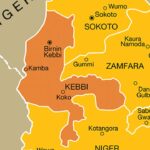As farmers continue to suffer from floods, draught and other climate-related losses, experts have called on the government at all levels to provide, on a regular basis, access to early warning services to farmers to prevent crop losses as climate change heighten risk across continents.
Early Warning Systems (EWS) are thus crucial for the provision of early warning information to trigger early action and enhance food security. Indeed, this information, if disseminated appropriately, could lead to better informed decision making that would enhance the adaptive capacity of farmers.
Patience Agyekim and Ndivile Mokoena pointed out that the current projected climate risks were worrying, given the fact that impacts will only become more frequent and severe, with large parts of continents warming twice the global rates.
Ms Agyekim particularly noted that farmers needed access to early warning services in order to prevent severe damages.
For every degree of warming, experts said there would be huge ramifications for food production and security as witnessed in parts of Africa with the droughts and flood over the last few years.
Mark Akpan, a senior advisor, Financial Services of the Rural Resilience Activity, and John Rachkara, deputy chief of party, Rural Resilience Activity, said smallholders in North East, Nigeria were particularly vulnerable to the effects of climate change.
They frequently have to contend with drought, floods and other extreme weather events, which cause crop failure, loss of livestock and property damage. They also face market-related risks, such as a lack of access to markets, information and finance, making it difficult for farmers to sell their products at competitive prices.
At the ongoing climate summit, campaigners warned that productivity had been decreasing in Africa since 1962, which is related to climate impacts. There will also be huge ramifications for livelihoods, biodiversity loss, health, water, conflict, human mobility and many other developmental issues, which really highlight the intersectional nature of these issues.
Ms Amy Thorp, senior climate adaptation and resilience policy advisor at Power Shift Africa, said the climate emergency posed immediate intergenerational threats to the Africa communities and biodiversity.
“African governments are really incurring huge costs, and they would continue to experience economic and non-economic losses and damages related to climate impacts.
“The challenge is the fact that climate adaptation remains poorly underfunded, and the large gap between adaptation costs on the one hand and financing on the other end is really a major stumbling block to scaling the adaptation solutions and many of these solutions already exist, particularly at the grassroots level,” she said.
Africa needs a vision that prioritises deputation finance and action that recognises climate adaptation and resilience.
 Join Daily Trust WhatsApp Community For Quick Access To News and Happenings Around You.
Join Daily Trust WhatsApp Community For Quick Access To News and Happenings Around You.


